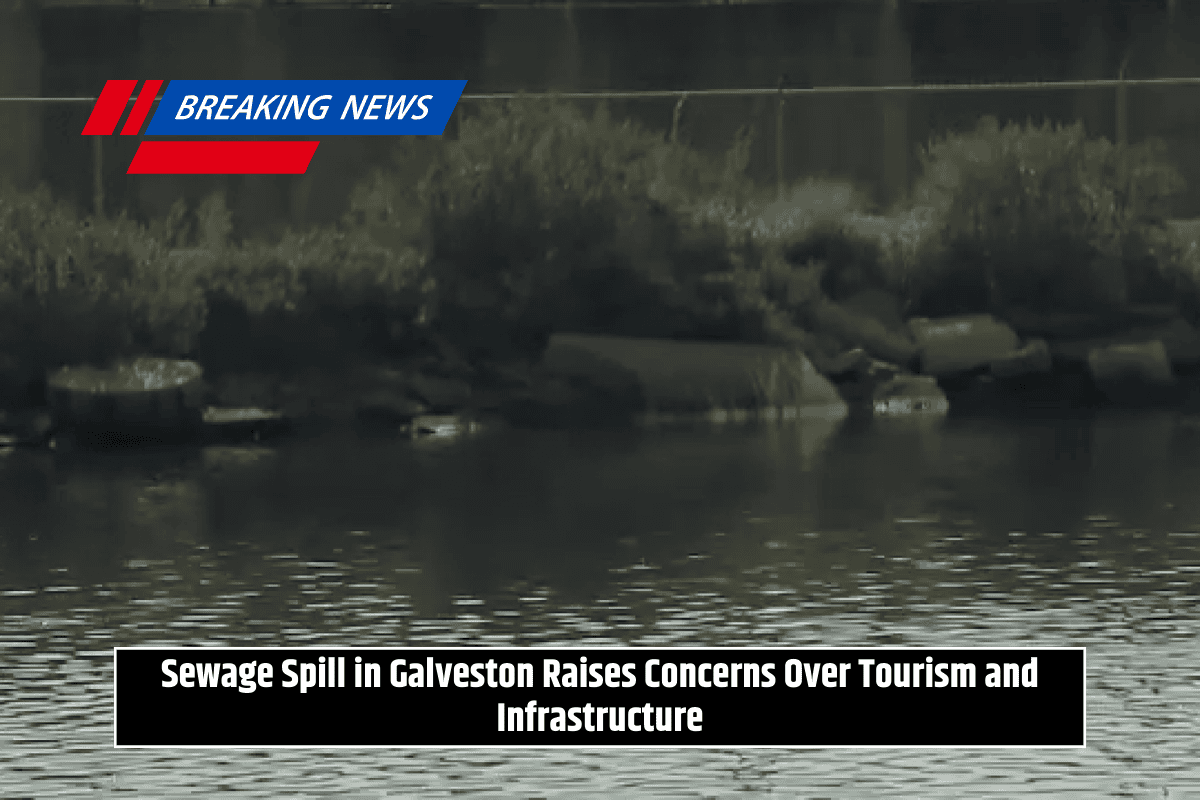Labor Day weekend is usually a busy and profitable time for Galveston, bringing in thousands of tourists. While this is good for the local economy, the sudden rush of visitors, combined with heavy rains, has caused serious problems for the city’s infrastructure.
This year, those issues led to a sewage spill that has raised both health and environmental concerns.
2,500 Gallons of Sewage Spilled from Facility
On Monday morning, around 2,500 gallons of sewage spilled from Galveston’s Airport Wastewater Facility. Neighbours noticed sewage floating outside the plant, and city crews took nearly five hours to clean it up. Officials quickly put out warnings asking locals to avoid nearby waters.
Assistant City Manager Brandon Cook explained that the leak was discovered at 8 a.m. and was contained by 1 p.m. He also confirmed that the water has been tested, with results expected soon.
Why Did the Overflow Happen?
Officials believe the spill may have been caused by two main factors:
Increased holiday tourism – Galveston had prepared for nearly 250,000 visitors over Labor Day weekend, which put extra pressure on the wastewater system.
Wet weather – Heavy rains added stormwater into the treatment facility. Since stormwater is treated like sewage, the plant was overwhelmed.
An investigation is underway to find the exact cause, but city officials admit this wasn’t an isolated issue.
Community Concerns and Reactions
Locals, especially those living near the facility, were alerted through public notices. Long-time resident and former city council member Rusty Legg stressed the importance of transparency, saying that people deserve to know the truth whenever such problems occur.
Environmental groups are also worried. The Galveston Bay Foundation warned that sewage spills can let harmful bacteria flow into Galveston Bay, affecting marine life and public health. They also recommended steps like better infrastructure, preventing fats and oils from entering drains, and reducing stormwater runoff.
What the City Plans to Do Next
City leaders admitted this was the fourth sewage overflow this year at the same facility. While no fines have been issued so far, state authorities are keeping a close watch.
To prevent future incidents, Galveston is:
Staffing the facility full-time
Installing a SCADA monitoring system that will send alerts before problems get worse
Spending hundreds of thousands of dollars on upgrades to manage peak tourism days
However, while staffing changes are happening immediately, the new monitoring technology will only be ready by next year.
The recent sewage spill in Galveston highlights the growing pressure tourism and weather changes are placing on local infrastructure. While the city is taking steps to upgrade its wastewater system, residents and environmental groups are calling for faster action and more transparency.
Protecting the bay and public health will require not just short-term fixes, but long-term investment in stronger, smarter infrastructure.
